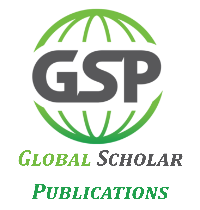Catalysis 4.0: A framework for integrating machine learning and material science in catalyst developmentpna
1 The University of Tennessee, Knoxville, USA.
2 Department of Mechanical Engineering, Nnamdi Azikiwe University, Awka Nigeria.
3 Independent Researcher, Florida, USA.
Review Article
Global Journal of Research in Multidisciplinary Stu10.58175/gjrms.2024.2.2.0053
Article DOI: 10.58175/gjrms.2024.2.2.0053
Publication history:
Received on 19 October 2024; revised on 20 November 2024; accepted on 23 November 2024
Abstract:
This paper introduces Catalysis 4.0, a comprehensive framework for leveraging artificial intelligence (AI) and machine learning (ML) in the development of catalytic materials. The framework is structured around three key components: data-driven material discovery, virtual testing environments, and adaptive feedback loops. Data-driven material discovery utilizes AI algorithms to predict catalytic performance based on extensive material properties and high-quality datasets. Virtual testing environments provide simulation platforms to evaluate catalyst efficiency under various industrial conditions. This significantly reduces traditional experimentation time and costs. Adaptive feedback loops integrate real-time industrial data, enabling continuous refinement and improvement of AI models. This approach accelerates the catalyst development cycle, enhancing efficiency and reliability. The paper discusses the potential impact of this framework on industries such as refining and pharmaceutical manufacturing, where AI-driven catalyst design can enhance performance and reduce costs. Future directions for research include improving data collection techniques, developing sophisticated AI algorithms, and fostering interdisciplinary collaboration. The framework's implementation can revolutionize catalyst development, driving innovation and sustainability in critical industrial sectors.
Keywords:
Catalysis 4.0; Artificial Intelligence; Machine Learning; Catalyst Development; Virtual Testing; Adaptive Feedback Loops
Full text article in PDF:
Copyright information:
Copyright © 2024 Author(s) retain the copyright of this article. This article is published under the terms of the Creative Commons Attribution Liscense 4.0
